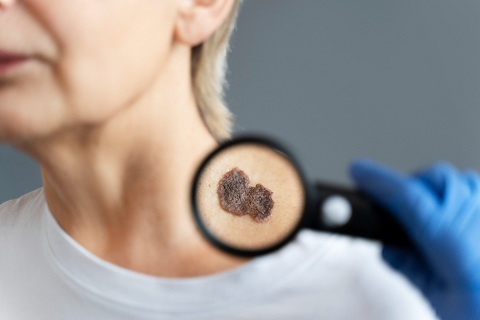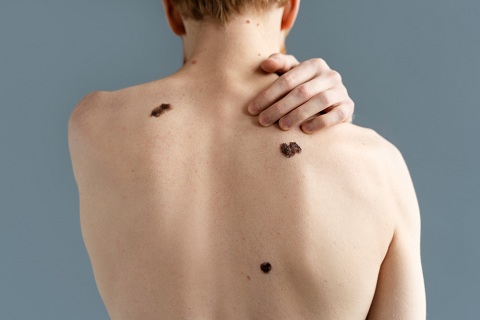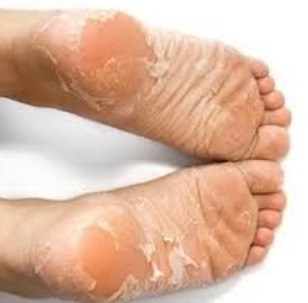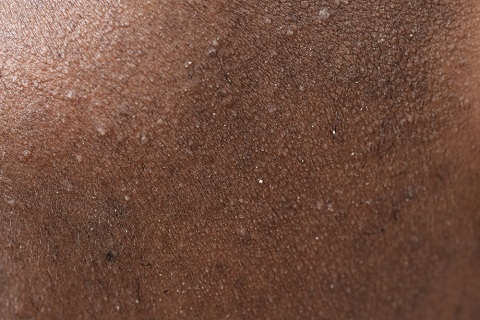Warts are a common dermatological issue that can affect people of all ages. In this comprehensive guide, we delve into the details of warts on skin, covering everything you need to know about their causes, types, treatments, and prevention strategies.
Warts are small growths on the skin caused by the human papillomavirus (HPV). They can appear on any part of the body, including the hands, feet, face, and genital area. Warts are typically harmless but can be unsightly and cause discomfort depending on their location and size.
Symptoms of Skin Warts

- Raised, Rough Texture: Most warts have a rough texture and may appear slightly elevated from the skin.
- Black Dots: Some warts may have small black dots, which are tiny blood vessels within the wart.
- Pain or Discomfort: Warts on weight-bearing areas like the feet can cause pain or discomfort, especially when walking.
- Over-growth: Sometimes occurs multiple wart on neck as like cauliflower.
- Horney: Horney warts are often seen on the tip of the nose, that looks are not good. Horney warts often occurs in enormous numbers, especially on the vulva and male genital area as like penis, glans and skin of the testes whic is known as genital wart .In colour they are pink, as their horney layer is thin and they are very vascular.
Types of Warts
- Common Warts: These warts often appear on the hands, fingers or around the nails, and knees, characterized by a rough, raised surface.
- Plane Wart or Juvenile Wart: A plane wart, also known as a juvenile wart, is a flat, smooth-surfaced wart that often appears on the face, hands, or legs.
- Plantar Warts: Found on the soles/heel of the feet, plantar warts can be painful due to constantly pressure from walking.
- Flat Warts: These warts are small and flat, commonly found on the face, arms, and legs and it occurs are the colour of the normal skin or sometimes slightly brownish. They may be so numerous as to resemble an inflammation.
- Genital Warts: Transmitted through sexual contact, genital warts require specialized treatment and medical attention. They are caused by the human papillomavirus (HPV) occur in both sexes.
- Filiform Wart: A filiform wart is a type of wart that typically appears as a small, flesh-colored growth with thread-like projections. These warts often occur on the face, especially around the eyes, nose, and mouth.
- Digitate Wart : A digitate wart is a type of wart that resembles multiple finger-like projections. These warts can appear on the hands, feet, and most often found on the scalp, but small ones are sometimes seen on the beard area in men or other parts of the body.
- Mosaic warts: Mosaic warts are clusters of small warts that grow closely together, resembling a mosaic pattern. They often appear on the hands and feet, caused by the human papillomavirus (HPV).
Diagnosis of Skin Warts

Diagnosing skin warts usually involves a visual examination by a healthcare provider. In some cases, a biopsy or other tests may be needed to confirm the diagnosis or rule out other skin conditions.
Treatment Options
A good dermatologist must be consulted for the proper treatment. The doctor can suggest you Over-the-counter solution, cryotherapy, Electrosurgery, prescription medications or may suggest you surgery if you want to stayaway from surgery or affraid to do surgery then definitely consult a good homoeopathy physician because homoeopathic method can cure this disease in many cases.
Prevention of Skin Warts
- Practice Good Hygiene: Wash your hands regularly and avoid sharing personal items like towels and razors.
- Protective Footwear: Wear flip-flops or waterproof shoes in public showers or swimming pool areas to reduce the risk of plantar warts.
- Avoid Touching Warts: Avoiding direct contact with infected skin, and wearing shoes in public showers or swimming areas can help prevent skin warts.
- Vaccination: Vaccination against certain strains of HPV can also reduce the risk of developing warts.
When to Seek Medical Attention
If a wart changes in size, color, or shape, or if it causes pain or bleeding, it’s important to consult a healthcare professional. Early detection and treatment can prevent complications and spread to other areas.
Home Remedies for Skin Warts
Some people prefer natural remedies for treating warts, such as applying duct tape or tea tree oil. However, these methods may not be as effective as medical treatments and should be used with caution.
Complications Associated with Skin Warts
Having visible skin warts can affect a person’s self-esteem and body image. It’s essential to address any emotional distress associated with warts and seek support if needed.
While most skin warts are harmless, they can be unsightly or uncomfortable. In rare cases, warts may multiply or become infected, requiring prompt medical attention. If warts are appear on the palms of the hands while preparing food in the shop, it is difficult to prepare food and customer also feel a little shy. Also in case of other warts, bathing in the swimming pool for a long time or being wet for a long time can be problem.
Children often bit their nails with their teeth or put their finger in their mouth if they have warts on the side of their fingers. In that case there might be a little problem.
If a wart is torn while combing the hair, or shaving the beard or due to the friction of hard shoes, it may bleed or even become infection and may spread other body.
FAQs about Skin Warts
Skin warts are contagious and can spread through direct contact or contact with contaminated surfaces.
Skin warts can reoccur after treatment, especially if the underlying HPV infection is not completely eradicated. Regular monitoring and follow-up care can help manage reoccurrence effectively.
Warts can be treated and removed, but there’s no guarantee of permanent eradication. Medical treatments like cryotherapy, laser therapy, or surgical removal can effectively eliminate warts, but new warts may develop if the underlying HPV infection persists.
To prevent warts from spreading, avoid direct contact with warts on your own body or others. Practice good hygiene, such as washing hands regularly and keeping skin clean and dry. Avoid sharing personal items like towels and razors, especially if you have warts.
Some warts may go away on their own without treatment, especially in children. This process can take weeks to months and varies depending on the individual’s immune response and the type of wart. However, not all warts disappear naturally, and medical intervention may be necessary for persistent or bothersome warts.
The duration of warts can vary widely. Some warts may resolve within a few months, while others can persist for years if left untreated. Treatment can shorten the duration of warts and reduce the risk of spreading to other areas. Regular monitoring and appropriate care can help manage warts effectively.
Conclusion
Skin warts are common benign growths that can be managed effectively with various treatment options. Understanding the symptoms, diagnosis, treatment, and prevention of skin warts is crucial for maintaining skin health and overall well-being.





